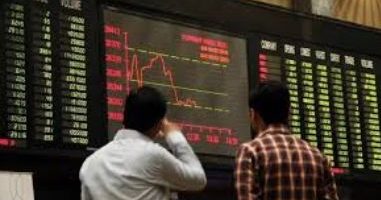Pakistan, IMF mull over keeping petroleum levy up to meet revenue target

ISLAMABAD, FEB 12 (DNA) : Pakistan and the International Monetary Fund (IMF) on Tuesday explored the possibilities to increase the non-tax revenue mainly by keeping the petroleum levy on the higher side in order to compensate for an expected reduction in the revenue shortfall.
The finalisation of such fiscal arrangement can pave the way for evolving consensus on striking a staff-level agreement at the conclusion of parleys on February 13. Pakistan desires pitching the Federal Bureau of Revenue’s (FBR) revised target in the range of slightly over Rs4.8 trillion against the earlier revised target of Rs5.238 trillion. If the Fund agrees, then the non-tax revenue will be further jacked up.
The only immediate option is to keep the levy on the higher side for all petroleum products at a time when oil prices are falling after the end of US-Iran tensions as well as eruption of coronavirus in China.
The IMF and European Commission had projected that the expected oil prices on the international market would be ranging from $56 to $58 per barrel for 2020-21. With the expected average price ranging around $55 per barrel for the remaining period of the current fiscal, the easy windfall could only be earned by keeping the petroleum levy on the higher side and not passing the benefit of a cut in the oil prices on to the consumers with immediate effect.
With increased revenues, the government will be in a better position to utilize resources for provision of direct subsidy to the poorest of the poor through the ration cards and Utility Stores Corporation (USC).
The Federal Cabinet has earmarked Rs10 billion for providing subsidy through the USC during a recent meeting held under the chairmanship of Prime Minister Imran Khan here on Tuesday.
IMF asked to loosen monetary policy stance
The visiting IMF mission also met with three renowned economists of Pakistan Dr Rashid Amjad, Sakib Sherani and Dr Abid Suleri in a meeting that continued for more than two hours.
The economists have recommended to IMF that it was not feasible politically and economically for the government to come up with a mini-budget with additional taxes at a time when rising inflationary pressures were squeezing the people really hard.
The IMF side responded that they were just asking the government to broaden the narrowed tax base without burdening existing taxpayers and increased reliance on one-off items of non- tax revenue side would not provide permanent solutions to the fiscal woes of the country.
The economists also asked for import substitution and reduction of Regulatory Duty and Additional Customs Duty on raw material, machinery and intermediary goods.
The economists also argued that the Fund must take a lenient view on indicative targets when Islamabad had fulfilled performance criteria by materialising all six targets under the Fund conditions.
They also pressed upon the IMF to loosen monetary policy stance because the higher policy rate was evaporating the fiscal consolidation by eating away a major chunk of collected financial resources on account of debt servicing payments and transfer of shares to the provinces under the NFC arrangement.
The Center was left with no resources and had to borrow to meet the expenditures on all other heads including defence, development, running of the government and provision of subsidies from day one.
“The rough patch for the economy has already witnessed low ebb and now there is a need to undertake consolidation for moving towards export-led growth,” one of the economists told the IMF team.
The CPI-based inflation is expected to lose its steam so there’s need to ease out monetary policy in the next policy as businesses could not grow with a policy rate of 13.25 per cent.
Related News

China Exports Drop More Than Expected in Setback to Recovery
Islamabad, Apr 12 (DNA): Experts lauded China’s role in advancing Hybrid Rice cultivation in Pakistan,Read More

PSX closed at historic high level of 69,619 points
ISLAMABAD, Apr 8 (APP/DNA): The 100-index of the Pakistan Stock Exchange (PSX) continued with bullishRead More


Comments are Closed